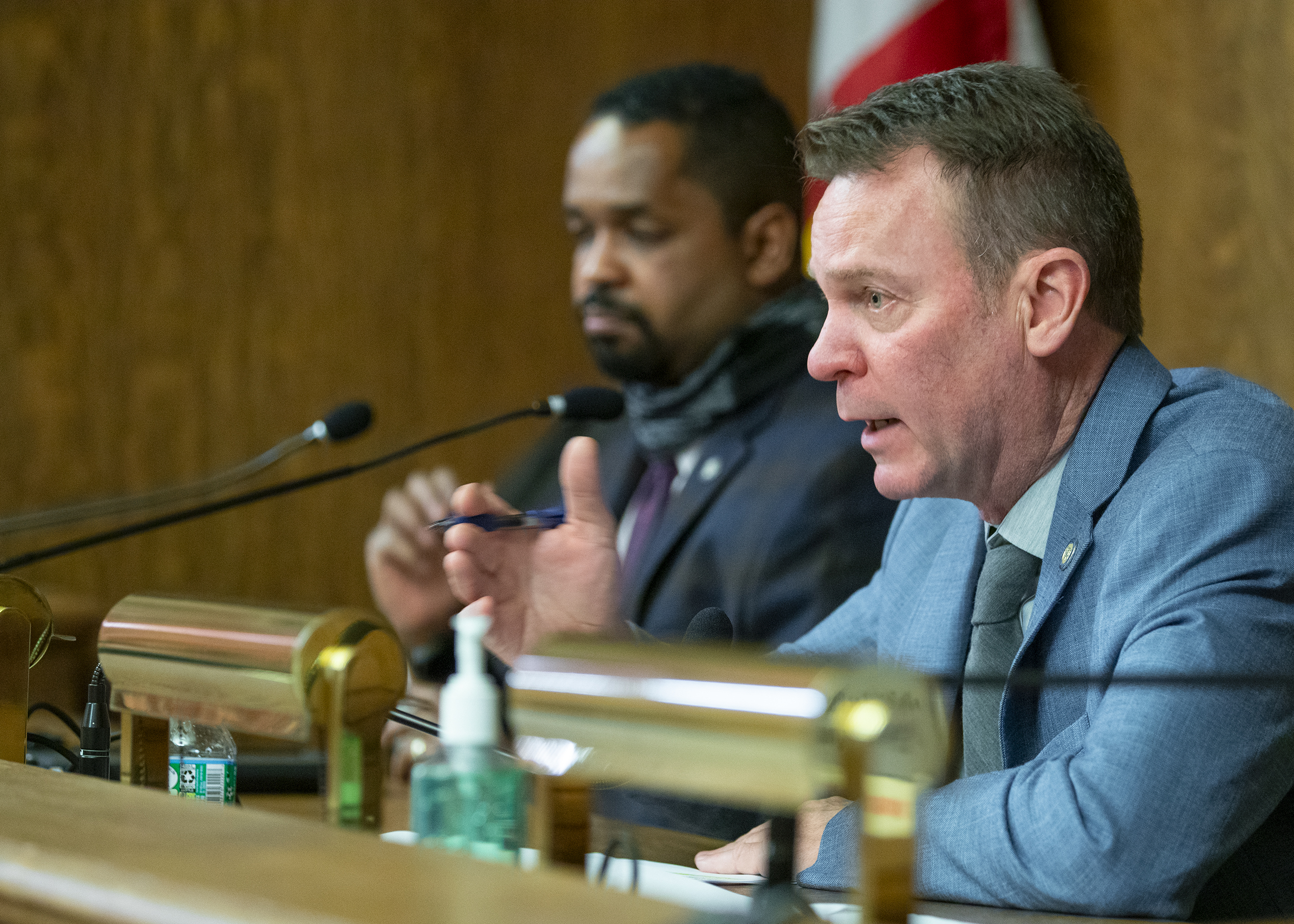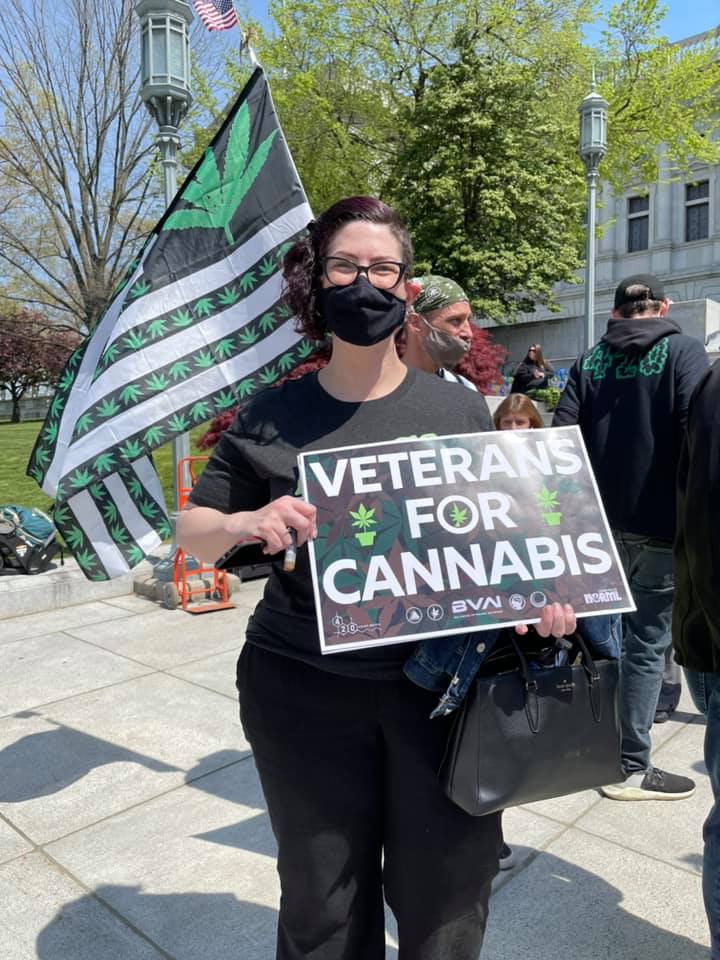Policy
As another neighboring state moves forward on recreational marijuana, Pennsylvania remains stuck in neutral
With Ohio joining the ranks of sales-friendly states, advocates for doing the same in Pennsylvania are ramping up efforts.

In 2024, 24 states will have approved legalized recreational marijuana. And while Pennsylvania is not one of them IMAM GIDIL/Getty Images
In 2024, 24 states will have approved legalized recreational marijuana. And while Pennsylvania is not one of them, state residents have no shortage of options just across state lines: With Ohio voters choosing to legalize adult-use cannabis during the November election, the commonwealth – except for West Virginia – is surrounded by states cashing in on the cannabis craze, including New York, New Jersey, Delaware and Maryland.
As the state loses even more ground to its neighbors in the race to capitalize on revenue from legalization, two politicians are still trying to turn the tide. State Sens. Dan Laughlin, a Republican from Erie, and Sharif Street, a Democrat from Philadelphia, have once again introduced a bipartisan regulatory framework aiming to spark conversations – and possibly ignite a favorable flame – in Harrisburg.
But as lawmakers weigh whether to roll with the legalization trend – and commonwealth consumers anxiously await clarity regarding cannabis – movement in surrounding states and Washington, D.C. may impact if, how and when the commonwealth opts for greener pastures.
Beat around the bush
Laughlin and Street’s proposal – Senate Bill 846 – is just their latest attempt to bring adult-use cannabis legalization in front of the General Assembly. The legislation, which mirrors unsuccessful legalization bills introduced in years past, seeks to establish a “rational framework” for legalization.
Several state lawmakers have introduced various legalization bills over the years – none of which never gained traction in a Republican-controlled legislature. But even as the Democrats control the state House and governor’s office, a Republican Senate would likely stand in the way of any potential legalization.
Specifically, SB 846 would establish an adult-use market for individuals 21 years and older while prohibiting marketing toward children and clarifying the inclusion of marijuana in the definition of driving under the influence. It would also provide workplace requirements for marijuana use, grant licenses to social and economic equity applicants and expunge all nonviolent marijuana convictions in the commonwealth.
U.S. Sen. John Fetterman, a vocal supporter of the cannabis legalization and expungement of nonviolent cannabis convictions, said legalizing adult-use cannabis is a “no-brainer.”
“It’s always astonishing when you have people in front of you who can’t be a volunteer at their child’s school, can’t get a better job, can’t get a loan because 12 years ago they got caught with a joint,” Fetterman told City & State.
Meredith Buettner, executive director of the Pennsylvania Cannabis Coalition, the trade organization for medical marijuana permit-holders, said top priorities for the commonwealth’s legal market should be to utilize current operators as the “on-ramp” to adult-use sales and to create a new regulatory body to oversee the industry.
SB 846 “overall does a good job at establishing a new regulatory body, ensuring that the gray market doesn’t pop up while also providing opportunities for new folks – particularly those in the social equity space – to make an entrance into the market,” Buettner said.
Buettner argued that despite the lack of support for legalization bills in recent years, Laughlin and Street’s continued bipartisan work is a step in the right direction.
Senate Republican leadership hasn’t dismissed the possibility of legalization but said it’s too early to tell how the commonwealth should address it amid federal uncertainty.
“The Republican Senate is our biggest obstacle at this point,” Buettner said. “(Law enforcement) is going to be dealing with (nearly) 50% of our population having legal access within half an hour of them, and no resources to help them deal with it … I think it’s shortsighted to kick the can of adult-use down the road.”
They aren’t the only ones showing interest in the topic: State House lawmakers have held meetings in Harrisburg on issues related to legalization, and Gov. Josh Shapiro surprised many people when his first budget proposal included revenue estimates for an adult-use cannabis market starting in 2025.
Shapiro’s projections – accounting for a 20% tax on the wholesale price of marijuana products – estimated about $16 million in tax revenue that first year, $64 million in 2026, $132 million in 2027, and more than $188 million in 2028.
Buettner expressed concerns that the proposed tax would be too high, explaining that a tax rate of 13% – similar to the 8% sales tax and 5% excise tax in SB 846 – is a more realistic starting point.

“The tax revenue that we’re already bleeding is incredible, but it’s just going to be exacerbated by Ohio coming online as well,” Buettner told City & State. “We, first and foremost, have to be concerned about the tax rate being low enough to help stamp out the illicit market and then, secondarily, be concerned about the revenue it’s bringing in.”
Laughlin told City & State that other states’ failures factored into his proposal.
“What we learned from some of these other states is that if you try to tax (marijuana) too high, all you’re really doing is helping the black market. That’s why we settled at the 8% tax rate,” Laughlin said.
Revenue, risks and the regulatory framework surrounding a legal marijuana market have long been discussed in Harrisburg, even when the odds of seeing movement were slimmer.
In 2020, proponents’ calls for legalization found a sympathetic ear in the governor’s office, when then-Gov. Tom Wolf and Lt. Gov. John Fetterman urged the Republican-controlled legislature to consider adult-use proposals.
Fetterman went on a 67-county tour across the commonwealth that year to gauge Pennsylvanians’ interest in cannabis. He recalled that regardless of whether the county was red, blue or purple, people were open to the idea of legalization, despite the controversy the topic could bring.
“Legalization is inevitable. Why not just get in front of it now in Pennsylvania and do the right thing?” Fetterman told City & State. “Four or five years ago, everyone thought I was weird or just a stoner because I believed that it was the right way to go. Republicans at the time said, ‘We don’t want this and the majority of people don’t, either.’ We found out we actually do, and now, we have been lapped by New York, New Jersey, Maryland, D.C. – and now Ohio.”
There remains hope that the current legislature – now with a razor-thin Democratic majority in the House – will take up legalization proposals this year. As party leaders chart a path forward, and committees hold hearings with industry stakeholders and experts, there is a shared sense that the commonwealth must avoid issues that have plagued other states’ shaky starts in the cannabis space.
Pot pitfalls
A benefit of being late to the game is that Pennsylvania can learn from the experiences of neighboring states like Maryland, New York and New Jersey, which offer prime examples of what to do – and what not do – when on the path to legalization.
State lawmakers nationwide have taken a variety of approaches to licensing and taxing cannabis. Andrew Freedman, the former cannabis czar in Colorado who is now executive director of the Coalition for Cannabis Policy, Education, and Regulation, said a preferred cannabis market would resemble the craft beer market, where small producers have access to capital and market space even with large companies leading the way.
“We call for a system that draws from best practices from what we’ve learned from states and also other highly regulated products … making sure what is on the market is as safe as can be for consumers and that we’re learning how to keep it away from children, and how to make sure people aren’t developing cannabis use disorder,” Freedman told City & State.
Similar to Buettner, Freedman said a market that takes advantage of existing infrastructure – such as current medical marijuana producers – to scale up while still maintaining spots for smaller players to join in is the best approach.
“Allow for a nationally regulated market but also allow states to determine time, place and manner of how they want sales of cannabis in their own backyard – that keeps the craft elements that are enjoyed there but also allows for interstate commerce needed to combat the illicit market,” Freedman said.
One of the newer entrants in the recreational marketplace is Maryland, which began adult-use cannabis sales on July 1, just months after voters approved legalization through a ballot initiative. Buettner said the state’s efficiency stems from coordination with existing medical marijuana providers.

“They moved really quickly … (and) because they leaned on the existing infrastructure, we haven’t seen that type of gray-market activity pop up that we have in other states,” she said.
The commonwealth’s path to creating a recreational cannabis market could be shaped not only by its neighbors marching into the market but also by the federal government’s long-awaited look at the drug and its classification under the Controlled Substances Act.
Scheduling conflict
President Joe Biden directed the Department of Health and Human Services in October 2022 to reconsider the classification of cannabis as a Schedule I drug. And in August of this year, HHS issued a recommendation to the Drug Enforcement Administration to reclassify cannabis to a Schedule III drug – moving it from a group of substances including heroin and LSD to one including drugs with a low potential for physical and psychological dependence, such as anabolic steroids and testosterone.
More than anything, rescheduling marijuana – deeming it as having an accepted medical use – would allow for expanded research into the drug and its impacts. Fetterman, who told City & State he urged Biden to make the move during his 2022 Senate campaign, said de-scheduling would be “a commonsense acknowledgment of where it should go.”
“The truth is, it’s going to be legal,” Fetterman said. “And in states where it has been legalized, somehow the world hasn’t spun off its axis. It wasn’t pandemonium or cats and dogs living in sin.”
The DEA is expected to follow HHS’ recommendation and move marijuana from Schedule I to Schedule III. Kevin Sabet, a former drug policy adviser and president and CEO of Smart Approach to Marijuana, a political organization opposed to the legalization and commercialization of marijuana, told City & State that he was “shocked” by HHS’ move.
“This is an intergovernmental sort of working group, so the fact that they announced it just kind of puts the DEA in a very awkward corner,” Sabet said. “It’s a corner DEA is familiar with – being the bad guys, – but it was totally inappropriate.”
Up in the air
Outside of the possible rescheduling of marijuana, legislative action at the federal level is unlikely to see any significant progress anytime soon. Sabet said legalization is likely in “wait-and-see mode” for the near future.
In the commonwealth, SB 846 remains in the state Senate’s Law and Justice Committee as of late November. Laughlin said about half of his caucus is still against legalization, while the other half is willing to bring the discussion to the table. But in the short term, he sees clarification of the state’s DUI laws and his bill allowing medical patients to access edibles as realistic measures that could be tackled by the year’s end.

“We need to seriously update our DUI laws,” Laughlin said, noting that under current law, medical marijuana patients could get charged even if unimpaired. “I don’t think anyone believes that’s reasonable.”
But as conversations in the commonwealth continue, advocates and policymakers nationwide will keep a close eye on how the legalization discussions play out. Freedman said that given Pennsylvania’s political diversity, it could be seen as a litmus test for how legalization negotiations could happen at the federal level.
“Pennsylvania really stands out as one of the major economies in America that this conversation is going to play out much more within the legislature,” Freedman said. “Seeing what works and doesn’t work in a bipartisan manner in Pennsylvania is going to help dictate how D.C. ultimately has this conversation.”
